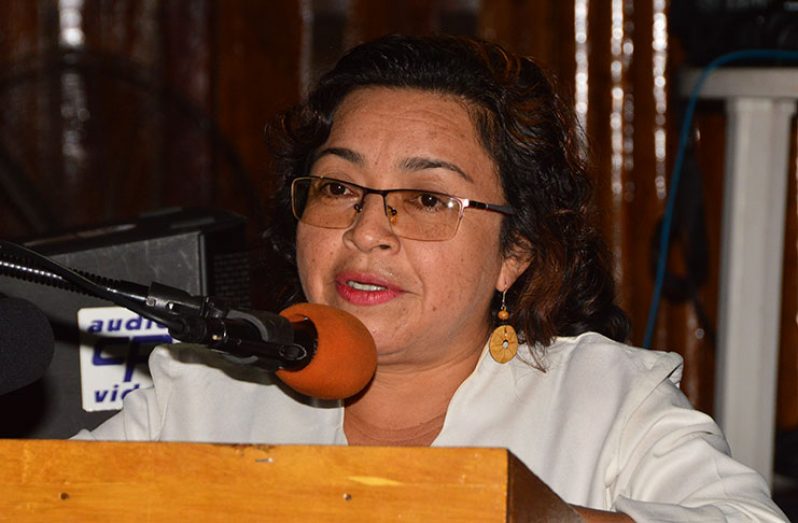– activists say
LOCAL activists have called for greater focus to be placed on mainstreaming Indigenous languages, particularly in the education system, as the government moves ahead with efforts to preserve these languages.
Indigenous rights activist, Laura George, called for the development of policies that would mainstream Indigenous languages in the education system so that this system can become one which is more applicable to Indigenous youth.

At a forum held recently in commemoration of International Mother Languages Day, George shared her own experience where her classes were taught in the Akawaio Language but the examination was not given in that language, instead, it was given in English.
“So how am I expected to be on par with the rest of the nation, who are not Indigenous speakers? And not being taught all the way, I am now forced to compete with those children,” she questioned rhetorically.
“Many times our children fall to the wayside, being deemed as non-performers, [and] it is a disadvantage; it is an injustice to Indigenous children in Guyana,” she posited and later added: “Many times formal education would have contributed to the erosion of cultures and the erosion of values.”
As such, she called for a “total reform” of the education system when dealing with Indigenous youth. And the reform process should include Indigenous teachers, Indigenous people who are involved in the rights’ approach and Indigenous elders.
“In the development of policy, it has to be something that is done in an inclusive way,” she said, while stressing that too often only the “academia” is included in these discussions.
“We need to discuss in a collective way how to do it. And it is not just preservation but the promotion [of languages],” George said.
Furthermore, she opined that technology can be harnessed in the endeavour to promote and preserve the languages.
At the same forum, Minister of Social Cohesion, with responsibility for Culture, Youth and Sport, Dr. George Norton highlighted that community radio stations have been established at Orealla, Bartica, Lethem, Aishalton and Mahdia. This move was to create channels of communication that would promote the usage of the languages.
Additionally, as part of a move to preserve the Wapichan Language, three schools in Region Nine have been targeted for a bilingual education programme, where the language would be incorporated into the curriculum.
Meanwhile, social activist, Vanda Radzik, called for avenues to incentivise Indigenous people themselves to take part in the promotion and preservation of their languages.
“In the arts – such as ceramics [and] textiles – Indigenous Guyanese they shine, they win the prizes and it’s just works of excellence and yet where is the equivalent for the Guyana Prize [for] the Indigenous poet or fictional writer or novelist?” she questioned.
The Guyana Prize is Guyana’s most prestigious literary award that celebrates outstanding Guyanese who have contributed in the literary field.
The time has come for Guyanese to move beyond just documenting Indigenous folk stories and instead document and experience Indigenous literature through the native languages, according to the woman.
“Part of my dream… is that in a few years’ time, there will be a Guyana Prize in literature for works in Indigenous languages,” she said. “That will then galvanise the poets, the writers and so on.”
And according to her, it is one thing to just preserve the languages but it is an entirely different dimension to have the languages “live”. Giving life to the languages would include persons fully embracing it through practice and usage.
“I really think that incentives like [the Guyana Prize] will go a long way in really inspiring and making language really ‘live’,” she said.
The year 2019 has been proclaimed as the International Year of Indigenous Languages by the United Nations General Assembly. The aim is to raise awareness of the consequences of the endangerment of Indigenous languages not only in Guyana but across the world.



.jpg)









